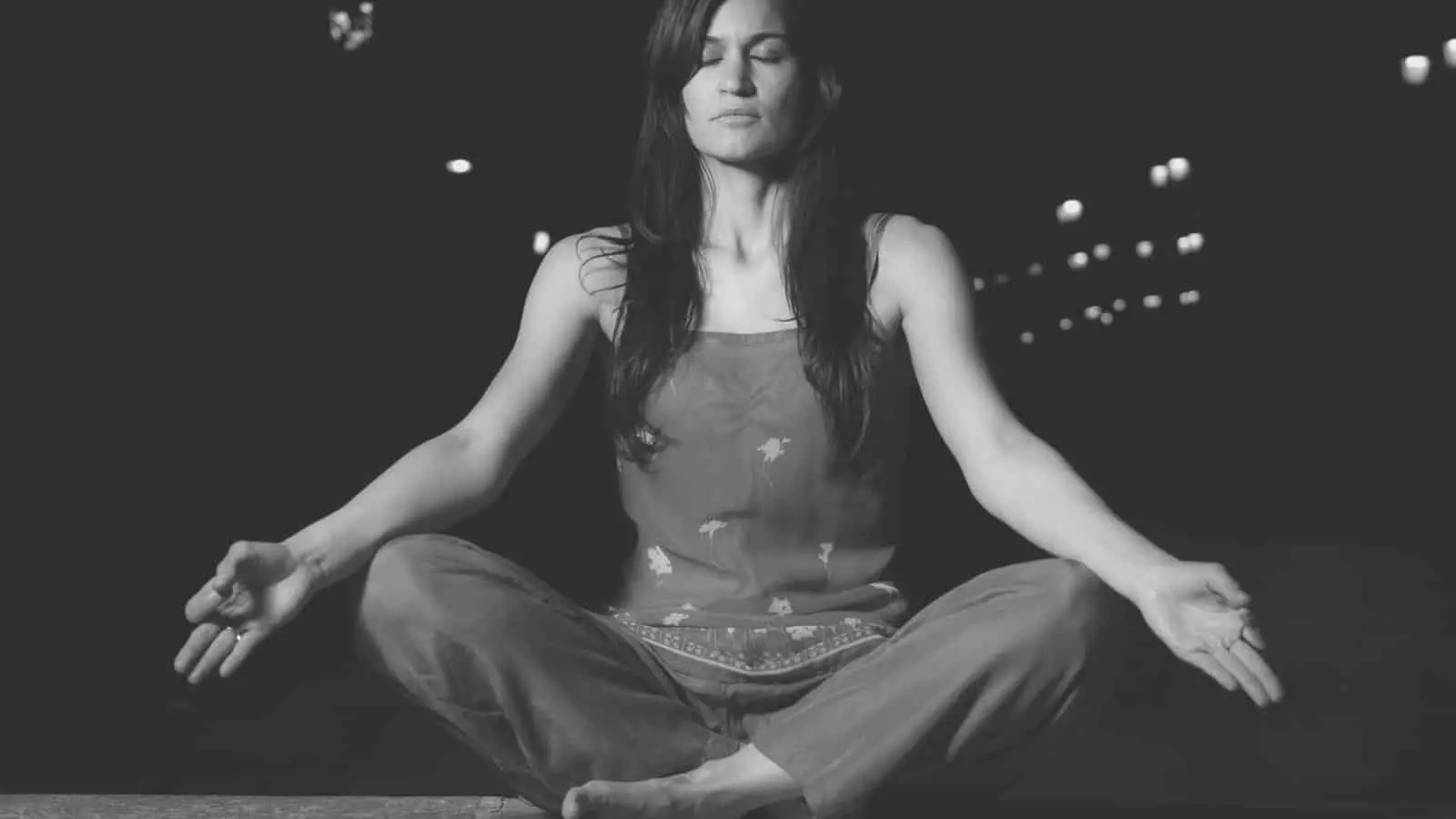Meditation is a great way to renew energy and reduce stress. It can put you in touch with your inner-most feelings as well as improve your health. There are ways you can maximize your meditation techniques, and one of these ways is to meditate in the dark.
Meditating in the dark has been practices for thousands of years and is a simple way to increase the benefits you get from meditation. It stimulates the pineal gland, which in turn helps the pituitary gland, among many other perks.
There are very few reasons you shouldn’t consider darkness meditation, and there are far more reasons why you should, and you’ll read about those below. Meditating in the darkness may not be for everyone, but for the vast majority that tries it, it can become one of the favorite ways to meditate.
Benefits of Meditation
There are common benefits to all types of meditation, but there are many others, including:
- Increasing self-awareness
- Gaining focus
- Getting a new perspective
- Reducing negative emotions
- Increasing creativity
- Patience
There is also a growing body of research that suggests that meditation can play a productive part in more healthful matters, such as:
- Sleep problems
- Tension headaches
- High blood pressure
- Depression
- Anxiety
You should speak to your family doctor if you are experiencing any health issues, but, at the very least, meditation can help to reduce the stress levels that come with health problems, resulting in a more robust immune system.
Stress can cause an increased amount of cortisol, a stress hormone that can cause sleep disorders and depression if production is too high. Meditation can reduce that hormone so can help cut down on stress-related diseases such as: irritable bowel syndrome, fibromyalgia, post-traumatic stress disorder.
There are also studies that suggest meditation can be beneficial in helping to control pain, a huge help to those that suffer from intermittent or chronic pain. All of the benefits of meditation are wonderful, but meditating in the dark takes those benefits and brings them to a higher level.
Benefits of Darkness Meditation
Taoist monks sought out caves for meditation, as the darkness in them was near complete and provided few distractions. Today, that practice is called dark room therapy, and a darkened room can be used rather than a cave. Some people spend weeks undergoing dark room therapy.
Even without spending weeks in sensory deprivation, monks for ages have used darkness meditation to enhance the effects of regular meditation. The enhanced benefits of this type of meditation include:

- A deeper sense of focus
- Enhanced creativity
- Pain reduction
- Pineal gland activation
Those are some of the extra benefits of meditating in the dark, but there are others as well.
With a quiet, dark room, you have fewer distractions when you meditate, which leads to a deeper sense of focus. When you have that deeper focus, you can more easily move into a deep meditative state and stay there.
After 30 minutes of sensory deprivation in a dark room, brain waves switch over to Theta waves. Theta waves are those waves that occur right before sleeping. It is this state that has been known to enhance not only problem solving but creativity as well.
With stress reduction can also come pain reduction. It’s one of the reported effects of sensory deprivation and darkness meditation. It can also help with sleeping disorders and even addiction problems.
By far, the most beneficial asset of darkness meditation may be the effect it has on the pineal gland and the pituitary gland.
Activation of the Pineal Gland
The pineal gland is located in the center of the brain in an area called the epithalamus and is sometimes called the “third eye” by mystics. This was once considered the center of enlightenment in the body.
The pineal gland secretes melatonin during darkness. Melatonin is now used for some sleep disorders and the easement of jet lag. Tryptophan is “a food” that can help the pineal gland produce melatonin and give you a bigger bang for your buck during dark meditation.
Some foods high in tryptophan are:
- Turkey
- Milk
- Salmon
- Almonds
- Peanuts
- Lima beans
- Bananas
- Spinach
- Broccoli
- Corn
There are many more that could help the meditation process. Using a healthy diet in conjunction with darkness meditation can boost the secretion of melatonin. That’s a very important hormone to have and can aid in several health issues, including:
- Sleep disorders
- Oxidative stress
- Eye health
- Migraine prevention
- Inflammation
- Cardiovascular health
As well as secrete melatonin, the pineal gland also regulates the pituitary gland, often called the master gland because it controls other hormone glands, like:
- Thyroid
- Ovaries
- Testicles
- Adrenals
So keeping your pineal gland healthy and producing melatonin is a good practice to get into, which is one of the reasons meditating in the dark can be so beneficial.
Extended stays in darkness produce more and more melatonin. However, once the body has secreted enough melatonin, it starts producing a substance called pinoline. If someone remains even longer in darkness, the pineal gland fills up on pinoline and begins producing Dimethyltryptamine (DMT).
It is this substance that can cause hallucinogenic visions during meditation. It is found in the body during birth and before death and can result in an extreme feeling of well-being and happiness. Some people spend weeks in a darkened room to achieve this effect.
Cons of Darkness Meditation

The biggest downside of darkness meditation is if you’re afraid of the dark. Darkness is associated with the unknown, and some people don’t do well with complete darkness. If you have a minor fear of the dark, you could ease into darkness meditation as a way of helping you with your fear. However, if you have an intense fear of the darkness, it is best to leave darkness meditation alone unless it is undertaken with the help of a therapist or expert.
For those who want to ease into darkness meditation, there are ways to do that, including:
- Candlelight meditation – The candlelight can give you a focal point while you sit in a darkened room.
- Himalayan salt lamp meditation – Himalayan salt lamp has a soothing, orange glow. It can help to reduce your stress and introduce you to reduced lighting rather than full darkness.
- Moonlight meditation – Meditate under a full moon outside. This low light should help with the darkness, and the ambiance should help with your meditation. Remember, there are only 13 full moons a year.
Tips on Darkness Meditation
If you decide that darkness meditation is for you, here are some tips to enhance your experience:
- Think of the darkness as a womb state, and you are going back to the beginning
- Pick a room that is as dark as possible. You want all light omitted
- Wear comfortable clothing
- Make sure you’re in a comfortable position in a comfortable room
- Clear your mind and close your eyes
- Spend at least 20 minutes focusing on nothing but the darkness
- Open your eyes for at least 5 minutes to process your meditation session
These are only tips, and your actual meditation may vary. Make sure your session is right for you and feels comfortable.
Should you meditate in the dark: Conclusion
Meditating in the dark can be a great stress reliever and also have some added health benefits. The drawbacks of meditating in the dark are minimal. Unless you’re extremely afraid of the dark or being alone in dark places, it’s one of the best ways to practice meditation. With the added focus, you can dive deeper into the psyche and perhaps even activate your third eye. It’s one step on the way to deeper meditation.




